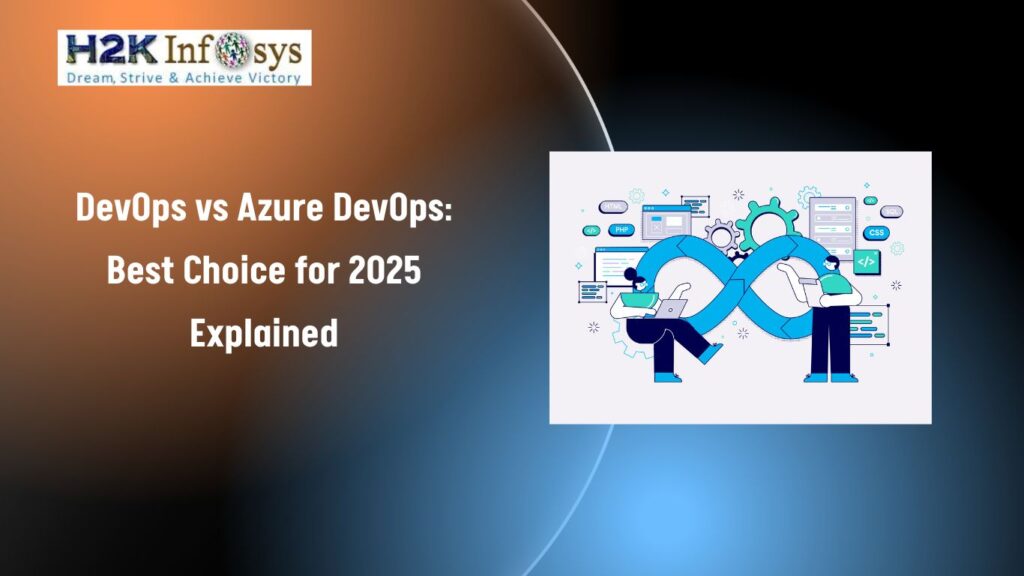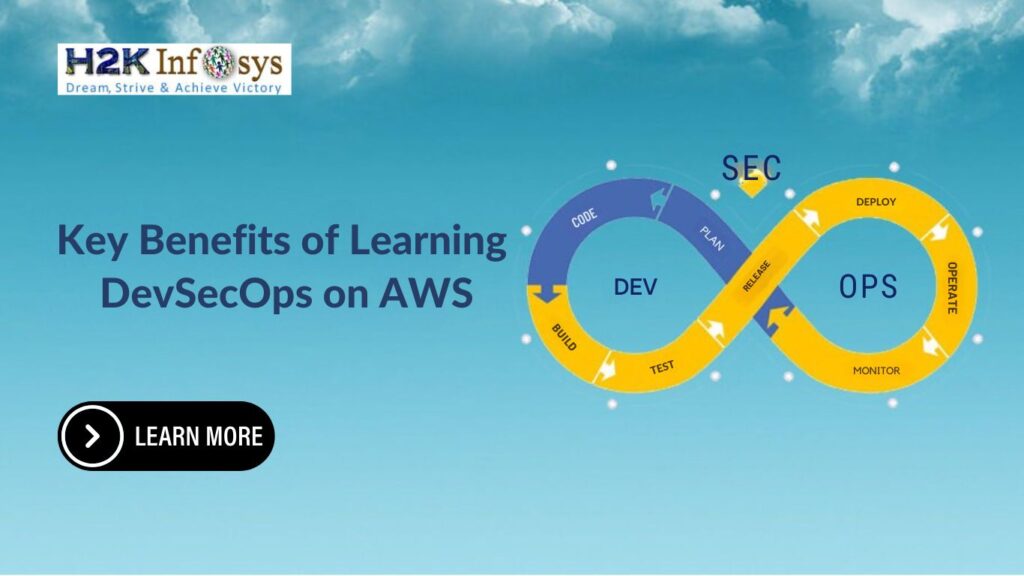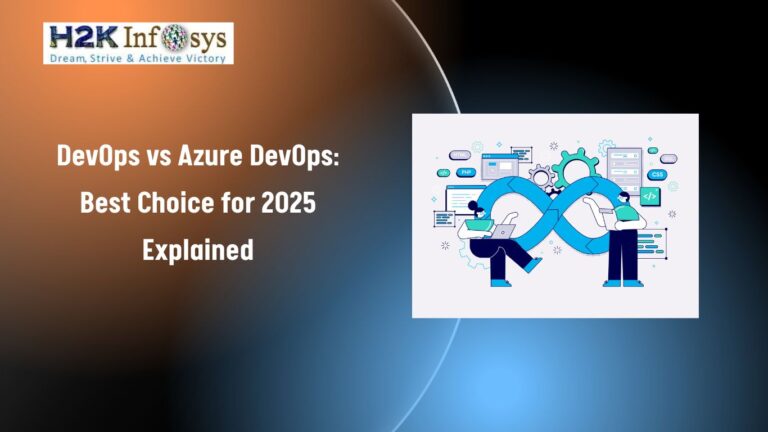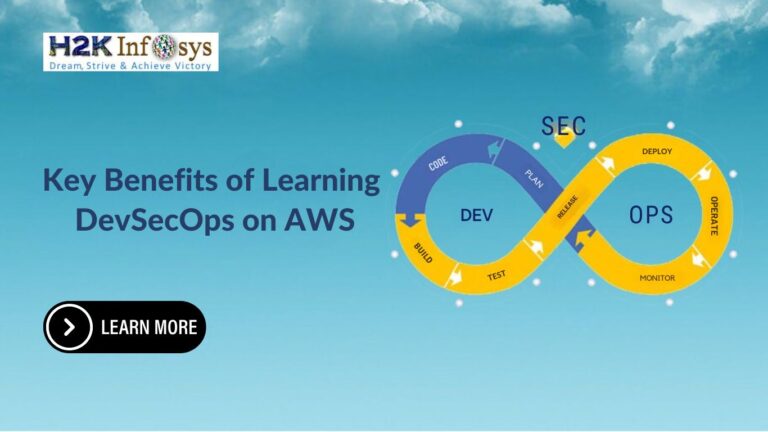In the Tech world, there has been a long-running discussion about DevOps vs. SysOps, and it doesn’t seem to be ending anytime soon. But what precisely are these two schools of thought? What effect will they have on your career? We’ll go over the main distinctions between DevOps and SysOps in this comprehensive guide to help you choose the best course of action.
1.DevOps
Software developers and information technology (IT) specialists should communicate and work together, according to the DevOps software development process. Shortening the software development life cycle and delivering features and bug fixes more quickly are the two main objectives of DevOps. DevOps is accomplished by combining feedback loops, automation, and monitoring.
While monitoring offers insight into the state of the software development process, automation helps to shorten the time it takes to deploy software upgrades. Feedback loops allow for rapid iterations and fixes depending on user feedback. DevOps is a crucial component of contemporary software development and is employed by numerous companies to accelerate their release cycles.
2.SysOps
Systems operations, or SysOps for short, is a word that covers a broad spectrum of IT administration and operations. It involves tasks including keeping an eye on and controlling system performance, handling backups and recovery, and guaranteeing security and compliance. The phrase is now also used to refer to DevOps, or the software development lifecycle automation method.
For any organization that depends on IT systems to function, SysOps is essential. Businesses wouldn’t be able to efficiently manage and maintain their systems without SysOps specialists, which would result in lost production and income. The need for SysOps will only increase as companies depend more and more on technology.
Now that we know exactly what DevOps and SysOps are, we will move to a detailed analysis of SysOps vs DevOps and their difference ranging from delivery methodology and value for a business to its major benefits.
3.Delivery Methodology
Continuous integration and delivery, or CI/CD, is the cornerstone of the DevOps delivery process. This implies that new software versions are regularly issued and that code changes are routinely merged into the main core. Accelerating the software development process and enhancing agility are the objectives.
The SysOps delivery methodology, in contrast, emphasizes dependability and stability. It doesn’t care as much about speed and only modifies the code when absolutely required. When it comes to mission-critical systems, this method is usually employed to reduce downtime.
While both DevOps and SysOps are legitimate methods for developing software, they differ in their advantages and disadvantages. Organizations that need to move swiftly and provide new features regularly are generally better suited for DevOps. Organizations that must guarantee the high availability and resilience of their systems, however, are better served by SysOps. You must hunt for the Best DevOps Courses Online in order to gain a deeper comprehension of the organizational behavior of these systems. Under their supervision, you may quickly and simply obtain extensive analysis.
4.Code Development
DevOps is primarily concerned with code development, whereas SysOps is more concerned with infrastructure management and code deployment. Modern DevOps teams require both DevOps and SysOps .
The goal of DevOps is to automate the entire code development process, from writing to testing to deploying. In contrast, the automation of infrastructure management and code distribution is the main goal of SysOps.
DevOps and SysOps are both vital, but they accomplish different things.This DevOps and SysOps While SysOps assists in maintaining and managing the infrastructure, DevOps helps developers produce better code and distribute it more quickly.
5.Reaction to Change
DevOps takes a more proactive stance when it comes to responding to change. The Development and Operations teams collaborate closely from the outset of the project to guarantee prompt and effective implementation of modifications.
Additionally, automation is applied wherever it can be to improve process efficiency. Conversely, SysOps adopts a more reactive strategy. Usually, incidents are handled as they happen, and adjustments are only made when absolutely necessary. This frequently results in updates being released later than planned, which may affect the system’s stability.
6.Implementation of Changes
Both DevOps and SysOps strive to expedite the execution of changes while maintaining quality control. Whereas SysOps teams usually rely on human processes, DevOps teams usually use automation to do this. DevOps and SysOps Both strategies, though, have benefits and drawbacks.
Although automation can help to increase consistency and decrease errors, it can also be difficult to set up and manage. Although manual methods are typically easier to use and require less upkeep, human error is a greater risk with them. In the end, the optimal strategy is determined by the particular requirements of the company.
7.Value for Business
When discussing the distinctions between DevOps and SysOps, especially in terms of the benefits they can offer to enterprises, there are a few important areas to consider. While DevOps focuses on delivering new features and functionality more quickly, SysOps is mainly concerned with the performance and reliability of systems.
Consequently, companies seeking greater speed and agility in their innovation would probably gain more from DevOps, whilst companies prioritizing stability may choose for SysOps. Even companies are providing the DevOps Certification Online to their employees in order to assist them in gaining the ideal understanding of their business.
8.Infrastructure Management
The goal of infrastructure management techniques like DevOps and SysOps is to make software development processes more efficient. Nonetheless, there are a few significant differences between the two. SysOps prioritizes monitoring and scaling, while DevOps concentrates on continuous integration and delivery. Although development and operations teams can collaborate thanks to both approaches, DevOps adopts a more comprehensive strategy by combining tools and procedures from all stages of the software development lifecycle.
DevOps is therefore frequently regarded as a more thorough approach to infrastructure management. SysOps, however, can be more appropriate for companies with more developed DevOps procedures. You should choose to obtain the best expertise on these methods and the AWS DevOps Vs. SysOps certification if you want a better understanding of infrastructure management.
9.Change Entity
The management and administration of an organization’s IT systems falls within the purview of systems operations, or SysOps. Tasks like system configuration, installation, maintenance, and troubleshooting are typically included in this. The goal of DevOps, on the other hand, is to automate and optimize the software development process. This covers activities like infrastructure as code, continuous delivery, and continuous integration.
Although working with IT systems is a commonality between DevOps and SysOps , they are two separate professions with different objectives. SysOps’ main goal is to maintain systems’ uptime, whereas DevOps’ is to enhance the effectiveness and caliber of the software development process. DevOps and SysOps teams consequently frequently have distinct skill sets and methodologies.
Typically, SysOps teams consist of experienced system administrators with extensive knowledge of overseeing intricate IT infrastructures. DevOps teams, on the other hand, frequently consist of engineers with knowledge in automation and programming. The two teams collaborate closely in many firms to guarantee that applications are monitored and deployed correctly.
10.Service Approach
SysOps is an operations approach, and DevOps is a service approach. Though they approach the task differently, both seek to expedite the time between creation and release while maintaining quality. To improve automation and communication, DevOps depends on cooperation between the development and operations teams.
Conversely, the goal of SysOps is to streamline and optimize the current Operations operations. While DevOps does not involve project management, SysOps does. Because of this, the two strategies work well together and can be combined to provide even greater results.
11.Benefits
There has been an ongoing debate between DevOps and SysOps. There is disagreement on which is the best choice, as each side has pros and downsides of their own. DevOps does, however, have a few significant advantages over SysOps. Firstly, DevOps places greater emphasis on automation. As a result, time-consuming and inefficient processes that were previously completed manually (like deployments and monitoring) can now be automated.
Additionally, DevOps places a strong emphasis on team cooperation, which can improve communication and foster a more harmonious workplace. Lastly, DevOps fosters a continuous improvement culture that aids in the prompt identification and resolution of problems. Although SysOps has advantages of its own, DevOps’ advantages make it the clear choice for many organizations.
12.Performance
Given that DevOps is designed for short deployment cycles, it has the ability to perform far faster than SysOps. But because there is less time for testing and quality assurance, this speed may result in instability. Despite its reliance on tried-and-true processes and procedures, SysOps is generally more stable and may be slower to deploy new code modifications. Furthermore, the difference in pay between DevOps and SysOps also matters because it is entirely based on how well you use these two platforms.
DevOps and SysOps Ultimately, the organization’s needs will determine which strategy is best. In cases when stability and reliability are critical, DevOps is probably the best option. If dependability and stability are more crucial, then SysOps is probably a better fit.
Conclusion
There are two distinct approaches for managing software development and infrastructure: DevOps and SysOps. Although there are certain parallels, the two are primarily different in how they handle change. In summary, SysOps is more concerned with repeatability and stability, whereas DevOps is more concerned with collaboration and communication between developers and operations personnel. To choose the best methods for your company, it’s critical to comprehend these fundamental differences. If you are into DevOps and you want to learn more, then check out our DevOps training online.





























